Movie Review – Bird Box
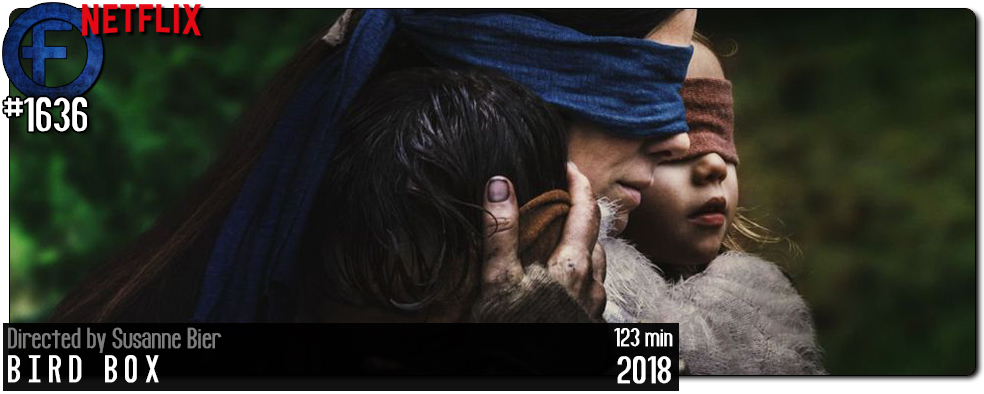
Principal Cast : Sandra Bullock, Trevante Rhodes, Jackie Weaver, Rosa Salazar, Daniella Macdonald, Colson Barker, Lil Rey Howery, Tom Hollander, BD Wong, Pruitt Taylor Vince, Sarah Paulson, John Malkovich, Vivian Lyra Blair, Julian Edwards, Parminda Nagra, Rebecca Pidgeon, Amy Gumenick, David Dastmalchian.
Synopsis: Five years after an ominous unseen presence drives most of society to suicide, a mother and her two children make a desperate bid to reach safety.
********
The latest global Netflix phenomenon is Bird Box, a clever little film starring Sandra Bullock based on the 2014 novel by Josh Malerman, a story with unavoidable similarities to the M Night Shyamalan movie The Happening. A collective wave of euphoria sweeps the globe causing humans to commit suicide, with most of civilisation naturally descending into chaos as systems collapse; Susanne Bier’s film makes the most of its weighty premise, anchored by Sandra Bullock’s central performance as a pregnant woman trying to survive.
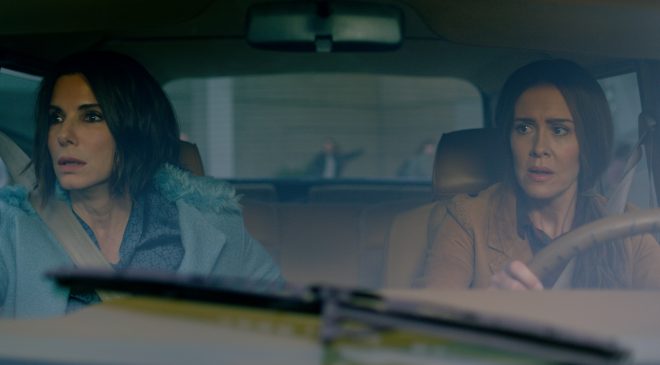
Bullock plays Malorie, an artist recently accidentally pregnant who has to survive a global pandemic of mass suicides. After attending a checkup with her sister Jess (Sarah Paulson), the initially European event spreads to North America and causes panic and pandemonium. People “see” something that causes them to become suicidal; Malorie becomes trapped inside a house with a collection of strangers, including the belligerent Douglas (John Malkovich), the also-pregnant Olympia (Danielle Macdonald), the dithering Cheryl (Jackie Weaver) and the circumpsect Tom (Trevante Rhodes). As they begin to piece together their strategy for survival, the body count rises until it’s left to Malorie and Tom to make a break for a potential safe zone.
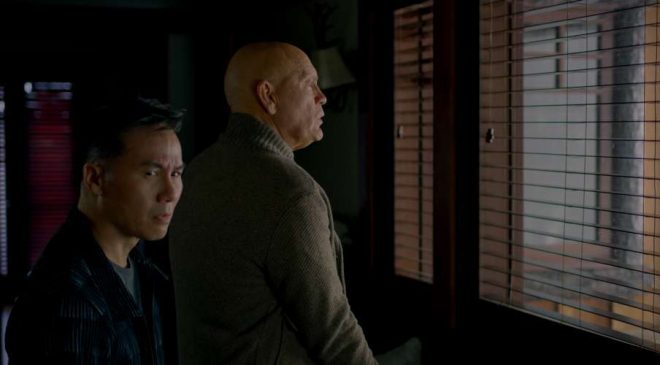
Solid apocalypse thrillers of any decent quality are a rare breed indeed; my favourite would have to be Frank Darabont’s The Mist, an equally disturbing little chiller that has one of modern cinema’s greatest ever gut-punch finales. Bird Box never achieves that level, but it does generate plenty of tension throughout its ensemble sequences and general tone of apprehension. Arrival and Hours screenwriter Eric Heisserer’s script also contains some sweet black humour (“it’s just a speed bump” had me wheezing) and a prevailing sense of dread that unlocks a primal feeling of terror in at least this viewer. It’s a character driven piece that doesn’t pander to cheap genre tricks, elevated by decent performances from a pretty decent ensemble cast of actors. It’s always more effective getting to know the random supporting players before the film offs them in unique and tragic ways, making their sacrifice or death all that more meaningful: Heisserer’s script builds the mystery of what’s happening by refusing to reveal information not readily available to Bullock’s character Malorie, a far more interesting perspective than the Roland Emmerich school of massive news broadcasts and sudden leaps in logic and exposition.
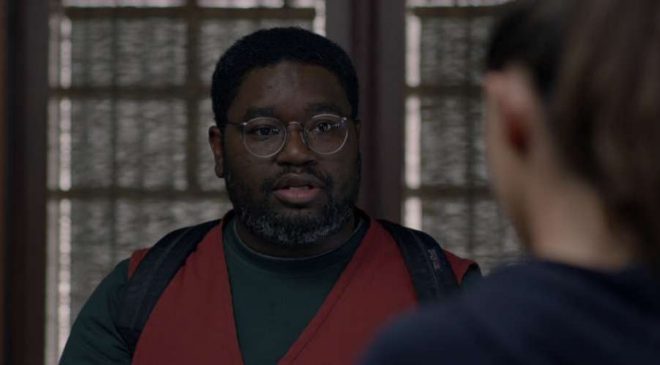
Of course with Bullock involved, the film’s calibre of acting performance is top-tier. Names like Malkovich, Paulson, Rhodes and Weaver pepper the film with work that revolves around Bullock’s typically great role, and the ensemble consists of archetypal characters for a genre flick such as this, disguised by a feeling of “oh, they’re in this too? cool!” prevailing throughout. The film is told on two discernible arcs, the first being Malorie fleeing in a boat down a river with two children (obviously not her own) and the second being the requisite “trapped in a house” plot that allows us to explore Marjorie’s character growth. Susanne Bier intercuts between the two at times in a manner that feel incongruous – neither arc really touches on the other, it must be said – but the twin narratives add elements of genuine alarm to this survivalist trope. The entities creating all the problems are an intangible, formless leaf-lifting howl, the motivation for all the carnage is as you’d expect absent, and the omnipresent removal of sight – similar to that of sound in 2018’s other sense-obligatory flick A Quiet Place – is used as an irrational fear of deprivation. Most great horror deprives its heroes from something, and Bird Box’s use of sight to ravage humanity is its most potent weapon. Bless the film, though, in that it doesn’t take the Shyamalan route and have plants be the antagonists in this.
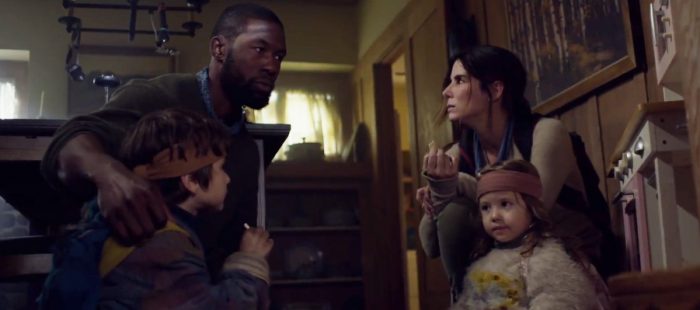
Where I think Bird Box works best is with Bier’s direction. Her use of camerawork, editing and cinematography – particularly the outdoorsy, trek-down-the-river material – are all excellent, and the gradually rising sense of risk is impeccably timed. The film’s deficits include some ropey CG effects here and there, and the wide-scale carnage of the Event’s reach feels smaller than I’d hoped (Shyamalan did it better, okay…) but Bird Box’s differences make it an overall more cathartic and effective film. Bullock is a far better actor than Mark Wahlberg and Bird Box is elevated because of this, even if Bier is yet to approach Shyamalan’s level of crafting pure terror out of virtually nothing. Bier’s smaller, more insular approach brings grit and muscular atmosphere to a story that is hamstrung by The Happening’s existence asking comparative thinking along the way (which is a shame, because if this film existed solely on its own it would have been a genuine hit) but if you go with it and enjoy, you’ll find a lot to savour. Not without its flaws, Bird Box is a genuinely effective and worm-like chiller that will linger long after viewing.


It surprised me. For some reason I wasn’t expecting a lot. Maybe it was the hype. Yet it was a good time.
At some point Netflix are actually going to make a film that’s universally adored and I’m going to be here for it. Bird Box is a far cry from some of the slop I’ve seen of theirs. The trajectory is at leas heading in the right direction.